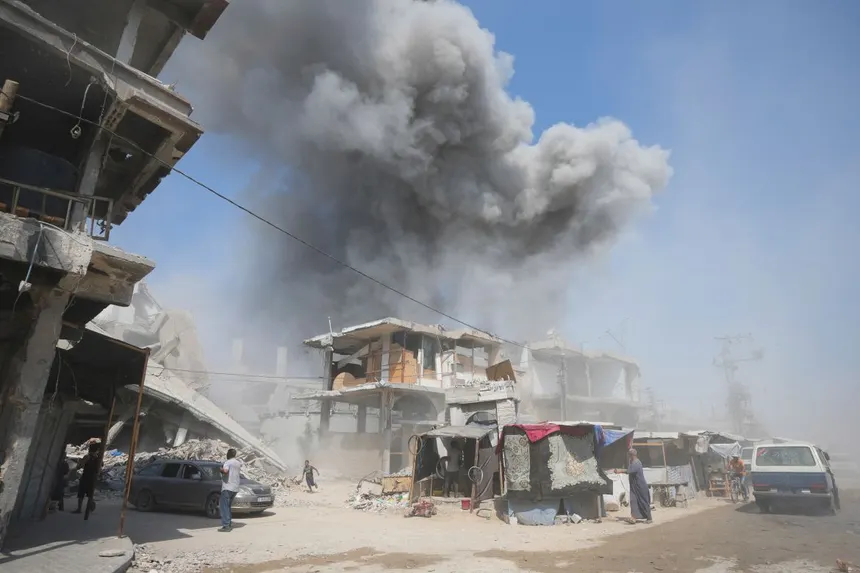After 12 days of intense military exchanges, the Israel-Iran conflict, with heavy US involvement, has de-escalated—but all three nations are now claiming victory. The war, which began with an Iranian strike on Israel, saw airstrikes, drone attacks, cyber warfare, and diplomatic clashes.
But in a war where propaganda is as powerful as missiles, who truly emerged victorious?
This analysis breaks down:
Military Outcomes for Israel, Iran, and the US
Economic & Diplomatic Consequences
Regional Power Shifts
Global Reactions & Future Risks
Who Claimed Victory—And What Really Happened?
1. Israel’s Claims: “We Degraded Iran’s Capabilities”
- Targets Hit: Israeli strikes reportedly destroyed Iranian drone factories, missile depots, and IRGC bases in Syria.
- Iron Dome Success: Intercepted 90% of Iranian drones & missiles, minimizing damage.
- Narrative: “We restored deterrence.”
Reality Check:
✔ Short-term win – Iran’s immediate threats were neutralized.
✖ Long-term risk – Iran’s proxy network (Hezbollah, Hamas) remains intact.
2. Iran’s Claims: “We Proved Our Strength Without Direct War”
- Symbolic Strikes: Launched 300+ drones & missiles (mostly intercepted).
- Proxy Warfare: Hezbollah & Houthis attacked Israel & US bases simultaneously.
- Narrative: “We stood up to Israel & America.”
Reality Check:
✔ Showed military reach – First direct attack on Israel from Iranian soil.
✖ Failed to cause major damage – Most strikes were thwarted.
3. The US’s Claims: “We Prevented a Wider War”
- Defensive Role: Helped Israel intercept missiles; warned Iran against escalation.
- Diplomatic Pressure: Sanctioned Iranian officials; brokered ceasefire talks.
- Narrative: “We stabilized the region.”
Reality Check:
✔ Avoided full-scale war – No US troops killed.
✖ Showed dependence on US defense – Israel’s autonomy questioned.
Who Actually Won? A Data-Driven Analysis
| Factor | Israel | Iran | US |
| Military Damage Inflicted | Moderate | Minimal | None |
| Strategic Goals Achieved? | Partial | Partial | Yes |
| Economic Impact | High (war costs) | Sanctions tightened | Minimal |
| Global Perception | Strong defense | Bold but ineffective | Crisis manager |
Verdict:
- Israel – Tactical victory (defense worked) but no long-term security.
- Iran – Propaganda victory (showed defiance) but military failure.
- US – Diplomatic victory (contained war) but shows regional dependence.
Key Consequences of the 12-Day War
1. Escalation Risks Remain
- Hezbollah & Hamas could launch new attacks.
- Israel may strike Iran’s nuclear sites preemptively.
2. Oil & Market Turmoil
- Brent crude prices surged 8% during the conflict.
- Global supply chains face new risks.
3. Shifting Alliances
- Saudi Arabia & UAE quietly supported Israel’s defense.
- Russia & China backed Iran diplomatically.
Final Takeaway: No Clear Winner, Only Future Risks
This war proved:
- Israel can defend itself but not eliminate threats.
- Iran can provoke but not overpower.
- The US controls escalation but can’t force peace.
The real losers? Civilians in Gaza, Lebanon, and Syria caught in the crossfire.
What’s next? Share your views in the comments!
Sources: BBC, Reuters, IDF statements, Iranian state media.
Sourashis Chanda brings readers their unique perspective on Business, Economy, Health and Fitness. With a background in Health and Physical Fitness of 2years, I am dedicated to exploring [what they aim to achieve with their writing, on the sustainable Economy of the country, various pro tips about business, latest goverment news, with some tips in health are and Fitness.







